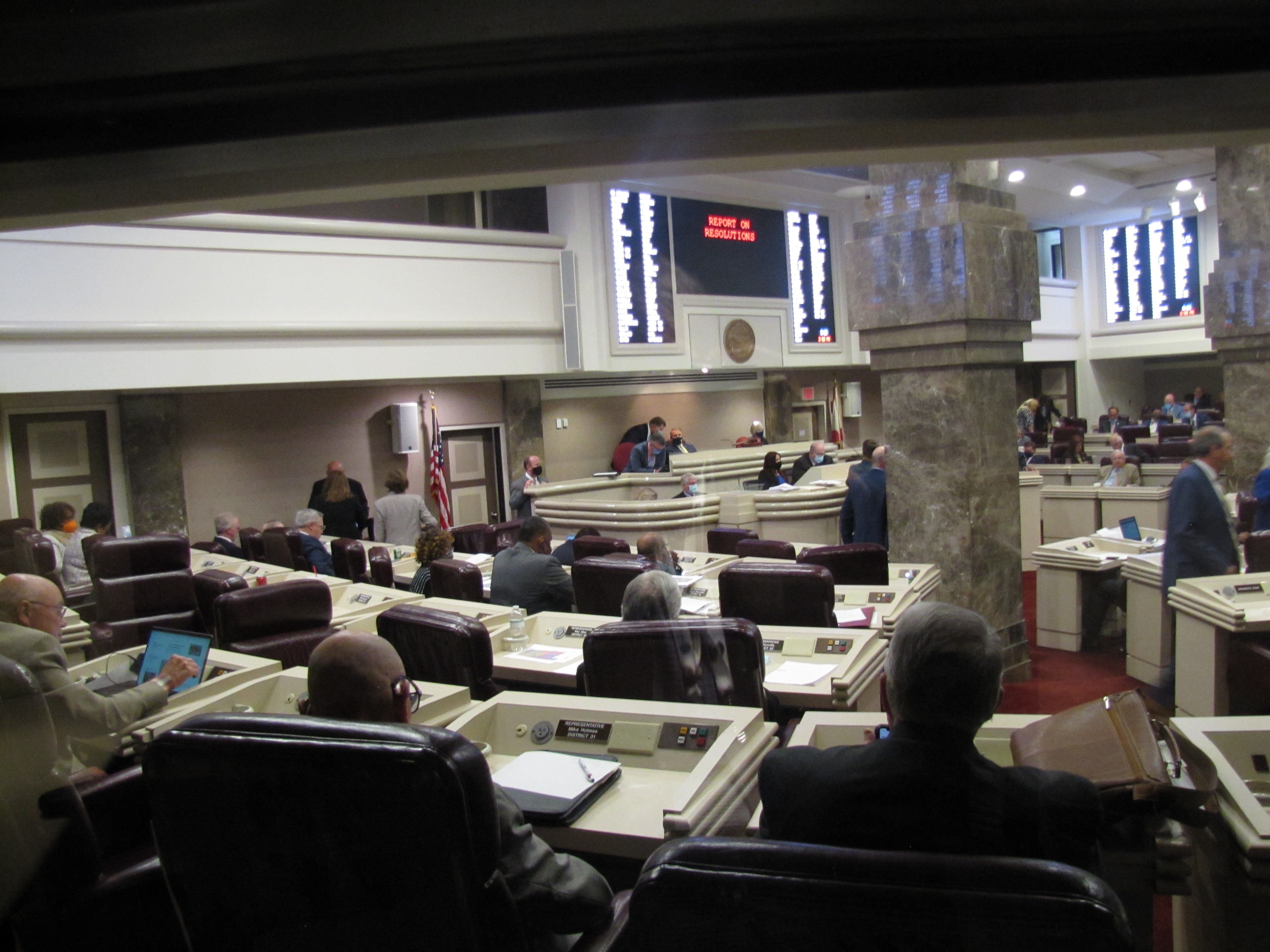The Alabama House of Representatives on Tuesday gave final approval to a Senate bill that would expand the types of gases that can be stored in underground caverns and designates the Alabama Oil and Gas Board as the state authority that will regulate them.
Senate Bill 36 (SB36) is sponsored by State Sen. Greg Albritton (R-Atmore). The bill was carried in the Alabama House of Representatives by State Rep. Barbara Drummond (D-Mobile). Drummond sponsored the House version, House Bill 97 (HB97).
Drummond explained, “This expands the definition of gas that can be stored and makes the Oil and Gas Board responsible for regulating those gases. This expands the facilities regulated to include carbon gases (which would include carbon dioxide – which has been identified by scientists as a greenhouse gas). This bill is sponsored by ADEM, the oil and gas industry, and the Oil and Gas Board.”
Rep. Mary Moore (D-Birmingham) asked, “Do they have the wherewithal to inspect the abandoned gas storage facilities.”
Drummond said that they did, but Moore disagreed.
“They don't monitor until they have a major incident and then they come in and monitor,” Moore replied.
After amending HB97 to exactly mirror SB36, Drummond asked that her bill be substituted with SB36, Albritton's bill.
SB36 passed the Alabama House of Representatives 101 to 0. It has already passed the Senate.
HB97 was indefinitely postponed as SB36 is going to the Governor.
Carbon sequestration is seen as having great potential for economic growth in Baldwin County moving forward.
Both Albritton and Drummond are members of the Permanent Oil & Gas Study Committee which met late last year to receive briefings on the issue. This is part of a long regulatory process starting with EPA granting Alabama primacy over CLASS 6 injection wells (the technical classification for such operations).
Just last week, Denbury Inc. announced that its wholly-owned subsidiary, Denbury Carbon Solutions, LLC, and a subsidiary of Natural Resource Partners LLP (NRP). have executed a Carbon Dioxide (CO2) Sequestration Agreement for the evaluation and potential development of a permanent CO2 sequestration site located on Alabama’s Gulf Coast.
The agreement provides Denbury with the exclusive rights to develop a CO2 sequestration site on approximately 75,000 acres of pore space controlled by NRP in Baldwin County, near Mobile, Alabama. Denbury estimates the total CO2 storage potential of this site to be over 300 million metric tons. Depending on the pace and scale of regional Carbon Capture Utilization and Storage (CCUS) development, Denbury may consider expanding its existing Gulf Coast CO2 pipeline network to connect to this site.
Chris Kendall is Denbury’s President and Chief Executive Officer.
“We are excited to announce this agreement with NRP, which further expands Denbury’s industry-leading Gulf Coast CO2 infrastructure position in a region with high volumes of existing industrial CO2 emissions,” Kendall said in a statement to investors. “In addition, the combination of this site’s significant expected CO2 storage capacity and its proximity to deep-water ports should enhance the region’s appeal for newbuild industrial development with carbon capture. We look forward to working with the team at NRP on this exciting project.”
Craig Nunez is NRP’s President and Chief Operating Officer.
“We are very pleased to partner with Denbury on this world-class carbon sequestration project, which has the potential to provide important benefits to the environment and add significant value to NRP," said Nunez. "Denbury’s extensive experience with CO2 transportation, underground injection and understanding of Gulf Coast geology, will enable us to maximize the value of our Baldwin County acreage. We expect this 75,000-acre project to be the first of what will potentially be numerous carbon sequestration projects conducted on the approximately 3.5 million acres where we own the rights to sequester CO2 across the United States.”
Denbury plans to complete a technical evaluation of the site to ensure its suitability for CO2 sequestration, while simultaneously pursuing agreements to transport and store CO2 emissions from nearby existing or planned industrial facilities. Denbury estimates that the site could be ready to receive CO2 injection by 2026.
The legislation now goes to Alabama Gov. Kay Ivey (R) for her consideration.
To connect with the author of this story, or to comment, email brandon.moseley@1819News.com.










